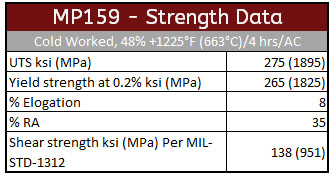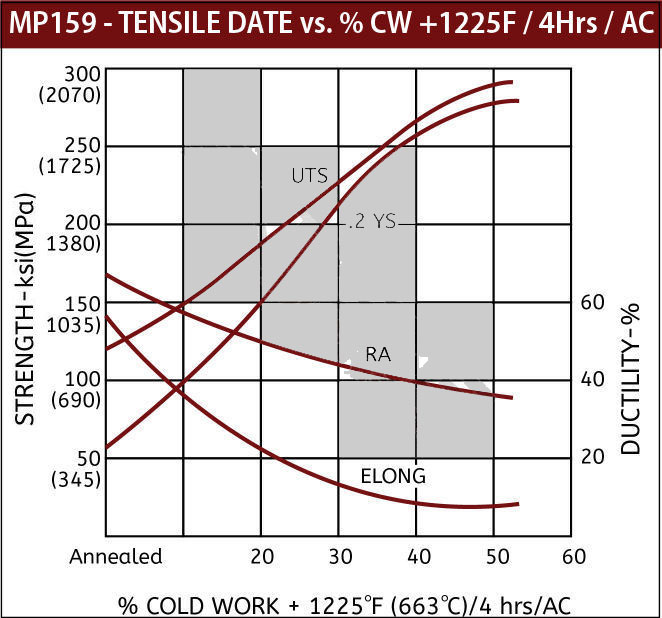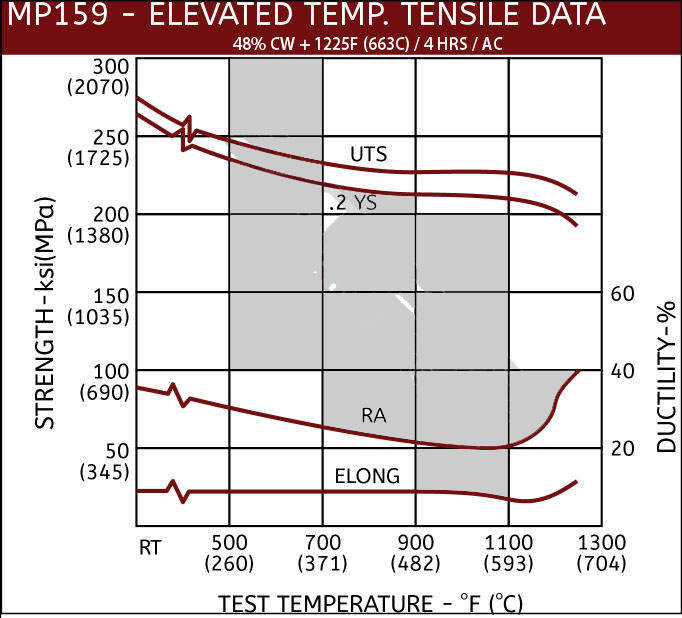Ultra-strength combined with extreme temperature capabilities
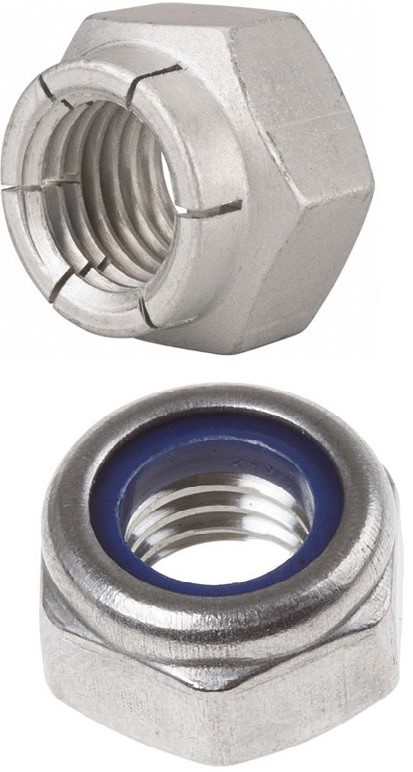 Extreme high strength properties up to 275 ksi ultimate tensile.
Extreme high strength properties up to 275 ksi ultimate tensile.- Maintains superior strength to 1100°F.
- MP159 chemisty and specification
- Datasheet for MP159
- MP159 lock nut features & benefits
As aerospace engineering advances, so must the materials to meet the technological requirements of this industry. Nuts made from MP159 have been developed to provide a solution to high temperature, high strength components. MP159 lock nuts offer strength capabilities similar to other Cobalt Alloys (MP35N) but can be used at much higher temperatures - up to 1100°F, compared to MP35N’s usable limit of 800F. In addition, MP159 lock nuts can be used beyond 1100°F in short term situations. MP159 lock nuts are available in flexloc all metal and nylon insert styles.
Key Benefits
- High ultimate tensile strength of 275 ksi and yield strength of 265 ksi (Cold Worked and Age Hardened) combined with excellent ductility and toughness
- Similar corrosion resistance compared to MP35N which is usable in mineral acids, hydrogen sulfide, seawater and salt spray environments.
- Excellent fatigue resistance and creep strength at elevated temperatures
- Excellent resistance to crevice corrosion, stress corrosion cracking and hydrogen embrittlement
Applications
- The aerospace industry relies on MP159 nuts for its most advanced gas turbine and jet engines, rocket boosters and jet propulsion systems.
- Power generation and chemical processing utilize MP159 lock nuts for applications that demand high strength at extreme temperatures.
Resources: MP159 Torque Spec
MP159 Fastener Types: Bolts, Nuts, Screws, Studs, Threaded Rod, Washers
MP159 Locknut Features and Beneifts
A MP159 locknut resists loosening from vibrations and torque. One of the most common styles is a prevailing torque locknut. This kind of MP159 locknut has a prevailing torque feature which deforms elastically, preventing it from freely spinning like a standard nut.
The two most common and reliable forms of prevailing torque locknuts are the flexloc style and the polymer insert lock nut. A MP159 flexloc nut is all-metal in composition with a segmented collar that creates six “locking fingers,” that act as a spring. MP159 polymer insert lock nuts are often referred to as nylon insert locknuts, although various high performance polymers can be used for the screw threads to “bite into.” Both flexlock and polymer insert locknuts are available in both hexagonal and 12 point configurations.
All Metal Flexloc Lock Nut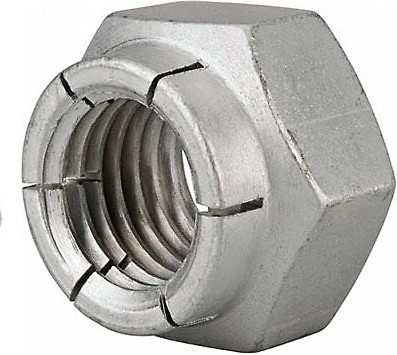 | 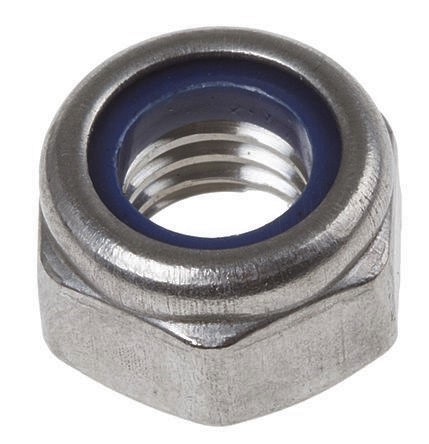 Polymer/Nylon Insert Lock Nut Polymer/Nylon Insert Lock Nut |
|
|
Other all metal lock nuts available include the MP159 stover and elliptical styles. Though these styles are often a cheaper initial cost, they are less reliable than the flexloc style. As these styles delivering less prevailing torque cycles and often result in more failures, the flexloc style is a better investment for both reliability and cost savings.
MP159 Chemistry and Specifications
MP159N Specifications: UNS R30159

MP159 High Strength Data
